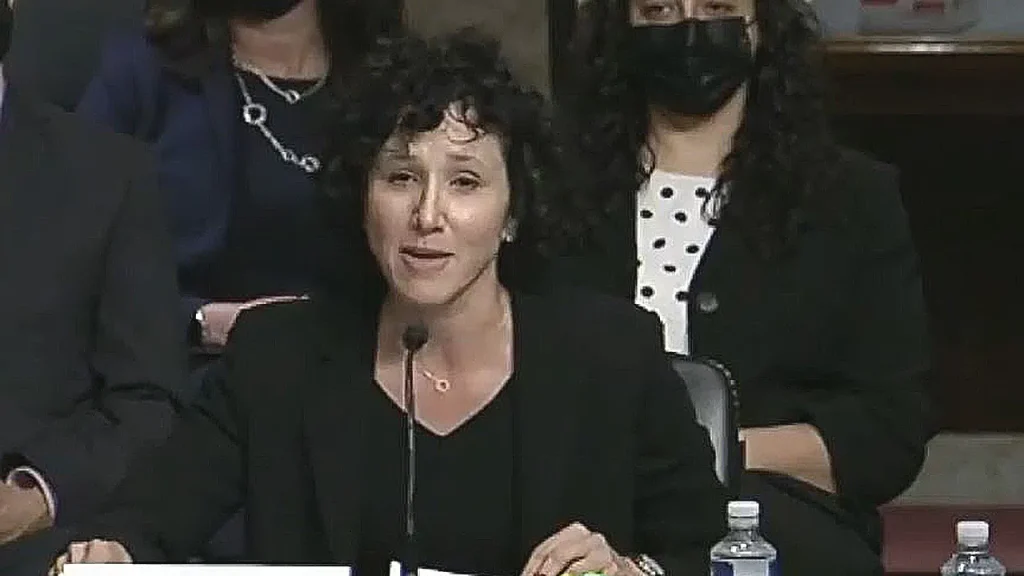Lenient Sentence in Kavanaugh Assassination Attempt Sparks Controversy
In a decision that has ignited fierce debate across the political spectrum, Judge Deborah Boardman sentenced Nicholas Roske to eight years in prison for the attempted assassination of Supreme Court Justice Brett Kavanaugh in June 2022. The sentence, handed down on Friday, falls significantly short of the Department of Justice’s recommendation of at least 30 years and has prompted strong reactions, particularly from conservative commentators. Roske, who now identifies as Sophie and is transgender, had traveled to Kavanaugh’s Maryland home armed with weapons in the weeks preceding the Supreme Court’s landmark Dobbs decision that overturned Roe v. Wade. The case has become a flashpoint not only for discussions about political violence but also about gender identity in the criminal justice system.
Judge Boardman, a Biden appointee who was confirmed to the U.S. District Court for Maryland in 2021, explained her reasoning during the sentencing hearing. While acknowledging that Roske’s actions were “reprehensible,” she cited several mitigating factors that influenced her decision for a reduced sentence. Chief among these was Roske’s “spontaneous confession to and cooperation with police” after arriving near Kavanaugh’s home. This explanation has done little to quell criticism from those who believe the punishment doesn’t match the severity of plotting to assassinate a Supreme Court Justice, an act that many argue strikes at the heart of America’s democratic institutions.
The reaction on social media has been swift and severe, particularly from conservative voices who see the sentence as dangerously inadequate. Mike Davis, a conservative lawyer who previously served as Chief Counsel for Nominations to Senate Judiciary Chairman Chuck Grassley, called Judge Boardman “a national disgrace” on X (formerly Twitter), suggesting that the lenient sentence reflects a broader political agenda. “Make no mistake: Today’s Democrats want conservatives killed,” Davis provocatively claimed. Other critics went further, questioning Judge Boardman’s fitness for the bench and expressing outrage at what they perceived as special consideration given to Roske due to gender identity issues.
Some commentators have drawn comparisons between Roske’s sentence and punishments for other crimes, with author M.A. Rothman calling it “pathetic” that “a guy who showed up at a Supreme Court Justice’s house armed and ready to kill him just got a lighter sentence than some people get for tax crimes.” This sentiment reflects a broader concern about proportionality in sentencing and whether attempts on the lives of public officials are being treated with appropriate gravity. The fact that Judge Boardman reportedly inquired about whether Roske would be sent to a women’s prison has added another layer to the controversy, with critics suggesting that gender identity considerations inappropriately influenced the sentencing decision.
The Department of Justice has signaled its own dissatisfaction with the outcome, with Attorney General Pam Bondi announcing plans to appeal what she described as a “woefully insufficient sentence.” In a statement posted on X, Bondi emphasized the severity of the crime, calling it “a disgusting attack against our entire judicial system by a profoundly disturbed individual.” This unusual step of publicly announcing an intention to appeal a sentence underscores the high-profile nature of the case and suggests significant concern within the DOJ about the message sent by such a relatively light punishment for an attempted assassination of a Supreme Court Justice.
The case brings into focus the complex interplay between judicial discretion, political polarization, and evolving societal attitudes toward gender identity in the criminal justice system. Judge Boardman, who served as a U.S. magistrate judge before her elevation to the district court by President Biden, now finds herself at the center of a heated national conversation about justice and accountability. As the DOJ proceeds with its appeal, the case will continue to raise important questions about how the American legal system responds to threats against government officials in an era of heightened political tensions. Whatever the ultimate outcome, the controversy surrounding Roske’s sentence highlights the challenging balancing act judges face when weighing individual circumstances against the need to protect democratic institutions and deter political violence.


